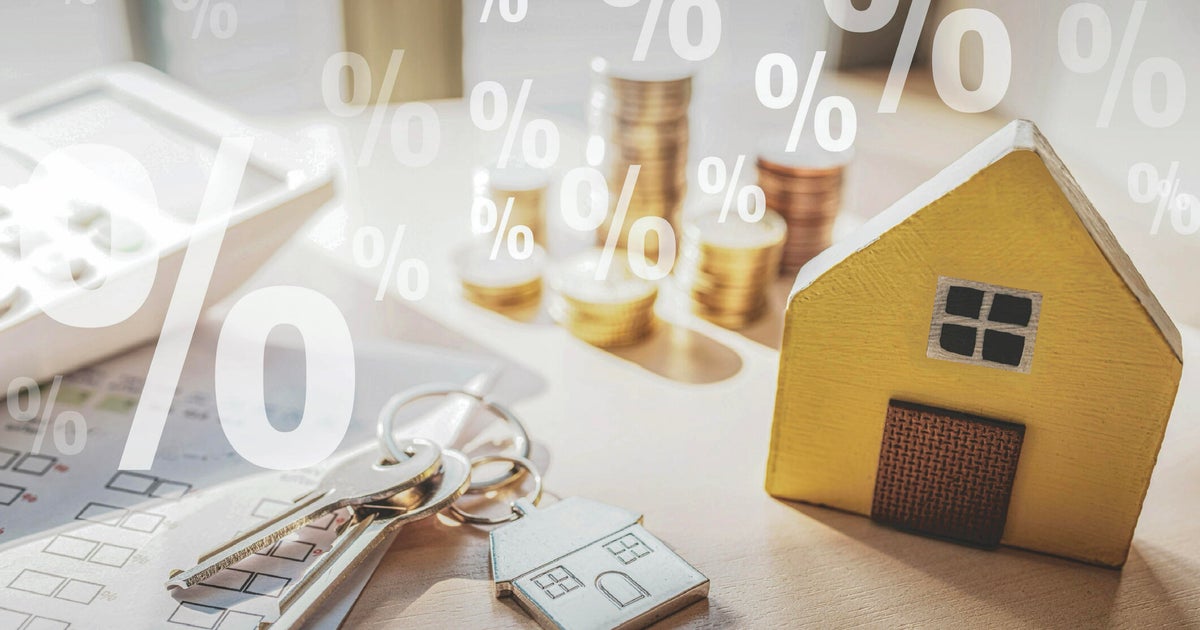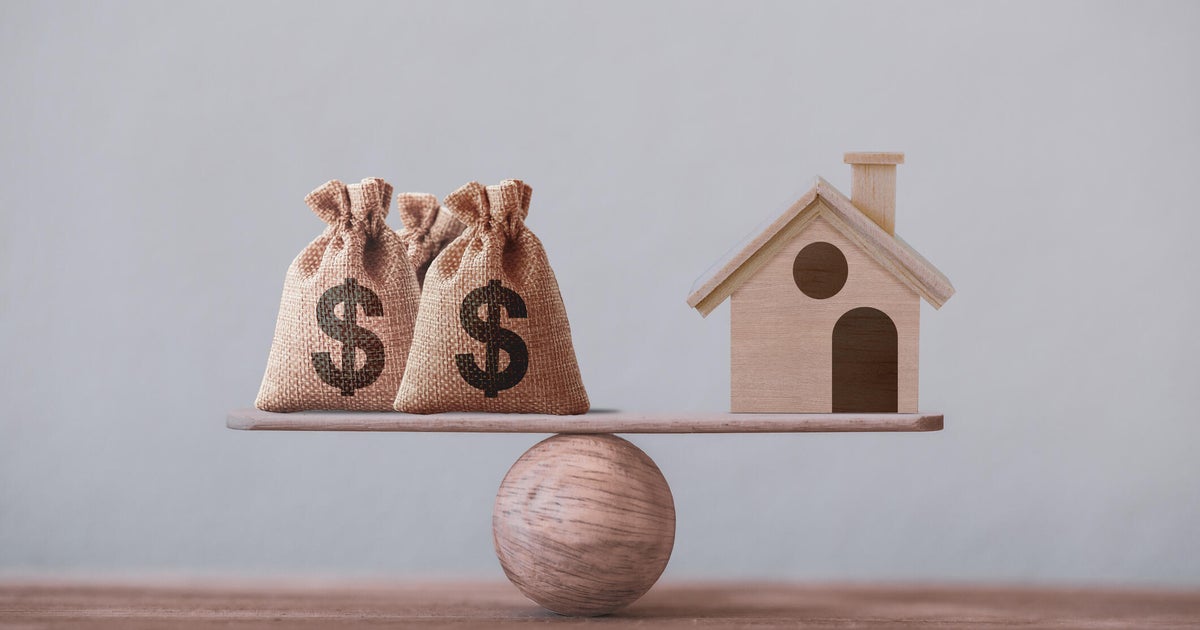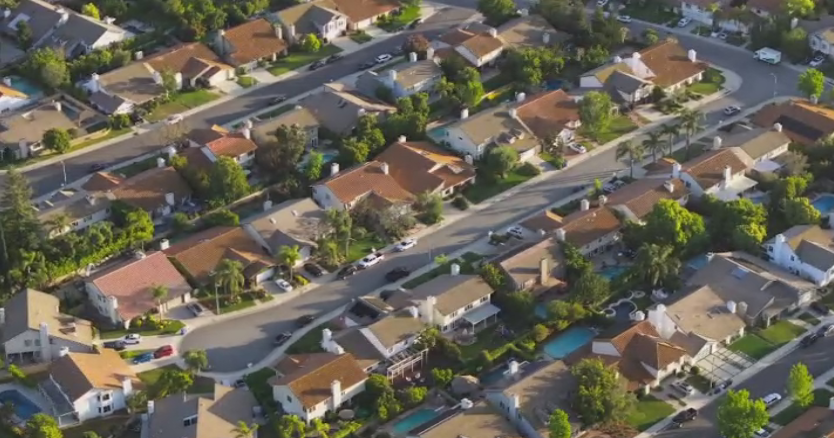Can you use a HELOC to pay off your mortgage loan?
With home values soaring over the past few years, many homeowners are now sitting on significant amounts of home equity. In fact, as of the first quarter of 2024, nearly 46% of mortgaged residential properties in the U.S. were considered equity-rich, according to a recent report from ATTOM, a real estate data firm. This means the combined loan balances on the property were no more than 50% of the estimated market value.
With the average homeowner sitting on about $193,000 of tappable home equity, it's no wonder home equity lines of credit (HELOCs) and home equity loans have become popular borrowing options. And, these home equity tapping options don't just allow homeowners to borrow against the equity in their homes; they do so with interest rates that are often lower than what you can get with other financing options, like personal loans and credit cards.
The ability to access large sums of cash at a low interest rate is certainly appealing. And, you can tap into your home's equity for nearly any purpose, adding to the allure. But can you use a HELOC, in particular, to pay off your mortgage loan? And, if so, should you? Below, we'll detail what to know.
Ready to get started? Compare the best HELOC rates available to you here.
Can you use a HELOC to pay off your mortgage loan?
The short answer is in most cases, yes — you can use a HELOC to pay off what you owe on your current mortgage loan. There's no restriction preventing you from using HELOC funds for this purpose. However, there are some important considerations and potential roadblocks.
For example, lenders typically won't let you borrow more than 80% to 90% of your home's appraised value with a HELOC. So if your remaining mortgage balance is quite high compared to your home's value, the HELOC alone may not provide enough funds to fully pay off what you owe. You'd need to have a significant equity cushion to pull this off.
And, even if the HELOC credit limit is enough to cover your mortgage payoff amount, you'll likely need additional cash on hand to pay other fees and costs associated with closing on a HELOC. This includes appraisal fees, title fees and any other lender charges. Those costs should be calculated in to help determine whether this route makes sense financially.
It's also worth noting that when you pay off your mortgage, the lender will remove their lien from your property's title. The HELOC lender will then take the first lien position on your home. Some HELOC lenders require that you pay off any other loans and liens on the home first before they take this leading secured position, so if you have other loans that used your home as collateral, you may be required to pay for those out of pocket as part of this process.
And, most HELOC lenders will require a credit check and look at your income, debts and ability to repay the line of credit, just like they would with any new mortgage loan. So while it's possible to use a HELOC to pay off a mortgage loan, those with lower credit scores or higher debt-to-income (DTI) ratios may not qualify for a high enough HELOC limit to do so.
Don't wait for rates to climb; learn more about the top home equity loan options now.
Should you use a HELOC to pay off your mortgage loan?
Whether you should use a HELOC to pay off your entire mortgage balance depends on your unique financial situation, your plans for the property and your tolerance for the risk that comes with variable interest rates.
When it makes sense
There are some instances when it could potentially be a smart move to take this approach, including:
- When you want to eliminate mortgage insurance: If you're currently paying for private mortgage insurance (PMI) on your existing loan because you put less than 20% down on your home, paying it off with a HELOC could allow you to not only eliminate your mortgage, but this recurring expense automatically as well.
- When you need temporarily lower payments: If you're going through a period of reduced income, underemployment or other short-term financial hardship, you may be able to lower your monthly payments by only paying interest on the money you borrow during the HELOC's draw period. You'll eventually need to pay back the principal on your loan, but temporarily reducing your monthly mortgage obligations could provide much-needed monthly payment relief for a while.
- When you plan to sell soon: If you expect to sell the home within the next few years, it could make sense to pay off your existing mortgage, especially if you can get a HELOC with a lower variable interest rate during your limited remaining time owning the property.
When it doesn't make sense
On the other hand, there are some situations when using a HELOC for a mortgage payoff may not be the best idea, including:
- When you're planning to stay long-term: If you plan to remain in the home for five to 10 more years, you may prefer the fixed interest rate and consistent payment amount that comes with a traditional mortgage compared to a variable-rate HELOC.
- When you're close to payoff: If you only have five years or less remaining on your current mortgage, it may make more sense to simply finish out those fixed payments to become mortgage-free rather than restart the payoff clock with a HELOC.
- When the HELOC rate is much higher: Be sure to compare the current variable rate on a HELOC vs. your existing mortgage rate. If the HELOC rate is significantly higher, the extra interest could outweigh any potential benefits.
The bottom line
If you want to use a HELOC to pay off your mortgage, it's certainly possible to do. But whether a HELOC should be used to pay off your mortgage depends almost entirely on your financial profile and goals. If you're going to pursue this route, just be sure to crunch the numbers, understand the terms and explore all alternatives first. That way, you can make an educated decision on how to best handle your mortgage obligations and avoid financial trouble down the road.






